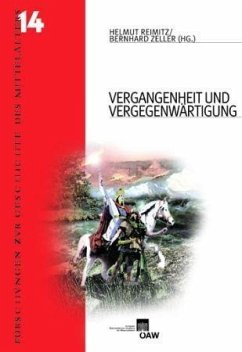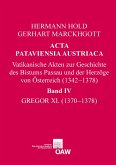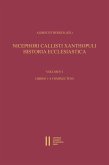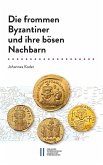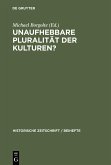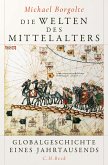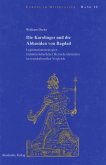Der Band beschäftigt sich mit der Frage, welche Rolle die mittelalterliche Vergangenheit in ihren zahlreichen Vergegenwärtigungen bis in die Gegenwart spielte. Im Anschluss an Band 8 der Reihe, der die frühmittelalterliche "Suche nach den Ursprüngen" im Zusammenhang von Identitätsstiftung und sozialer Erinnerung untersucht, steht in diesem Band die moderne Aneignung der frühmittelalterlichen Vergangenheit im Mittelpunkt. Gerade das frühe Mittelalter spielte für die Identitätsstiftung der modernen europäischen Nationen eine wichtige Rolle. Mit dieser Zeit verband man - besonders im 18. und 19. Jahrhundert - den Beginn einer Ordnung Europas in Völker und Nationen. Diese oft geschichtlich argumentierte, aber letztlich trans-historische Auffassung von Völkern und Nationen als quasi natürliche gesellschaftliche Organisationsformen begleitet uns in Europa bis in die Gegenwart und scheint bedauerlicherweise in politischen Auseinandersetzungen mancherorts wieder wichtiger zu werden. Die meisten Beiträge des Bandes beschäftigen sich daher mit der Aneignung des frühen Mittelalters aus nationalgeschichtlicher Perspektive. Einige Beiträge untersuchen Strategien des Umgangs mit frühmittelalterlichen Vergangenheiten, aber auch in anderen Kontexten. So werden Muster erkennbar, wie im modernen Europa in verschiedenen sozialen Zusammenhängen Fremdbilder transportiert oder Zugehörigkeiten legitimiert werden. ... This volume examines the role played by the medieval past in its many representations up to the present day. Continuing the theme of Volume 8 of the same series, which examined the early medieval search for origins in relation to building a sense of identity and social memory, this volume focuses on the modern appropriation of the early medieval past. The early Middle Ages played an important role in the creation of a sense of identity for modern European nations. In the 18th and 19th centuries, a process was begun of delineating Europe according to peoples and nations. This conception of people and nations as quasi-natural forms of social organisation, often claimed as being historical but ultimately considered to be a trans-historical phenomenon, still survives in modern Europe and unfortunately seems to be increasing in importance in the political disputes in certain areas. Most of the contributions in this volume deal with the appropriation of the early Middle Ages from the perspective of national histories. A few contributions examine strategies of using the early medieval past in other contexts. It is thereby possible to identify patterns of how, in the varied social contexts of modern Europe, images of the Other have been transmitted or the sense of belonging has been legitimised.
Dieser Download kann aus rechtlichen Gründen nur mit Rechnungsadresse in A, B, BG, CY, CZ, D, DK, EW, E, FIN, F, GR, HR, H, IRL, I, LT, L, LR, M, NL, PL, P, R, S, SLO, SK ausgeliefert werden.

